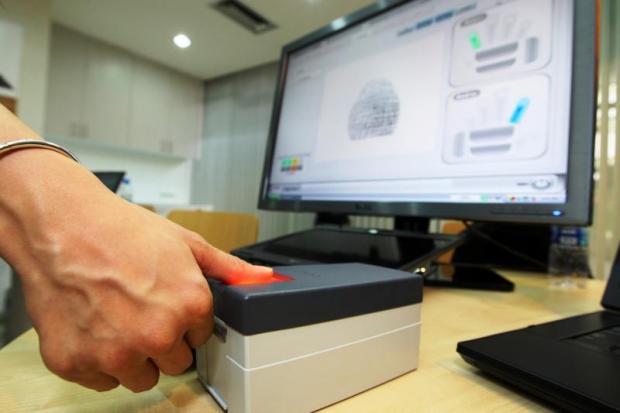
Thailand's three major mobile operators must provide at least 600 service areas in total by next month for new prepaid and postpaid mobile SIM card users to register for the online fingerprint ID system.
The companies face penalties if they fail to meet the nationwide quota.
The three operators are Advanced Info Service (AIS), Total Access Communication (DTAC) and True Move. Each company will have to provide fingerprint scanners at 200 service areas by next month.
The National Broadcasting and Telecommunications Commission (NBTC), however, wants all existing mobile users to put their fingerprints in the system on a voluntary basis for the benefit of their own security.
The fingerprint system is aimed at ensuring greater security of the mobile banking channel and preventing the risk of fraud, which is likely to increase in a cashless society.
NBTC secretary-general Takorn Tantasith said all mobile operators will have to provide a total of 8,000 service areas for fingerprint ID systems nationwide by year-end.
Through a fingerprint enrolment process, mobile operators will scan each person's fingerprints and store them on the NBTC's secure database server.
The fingerprint system will complement the existing registration system.
Mr Takorn said that all mobile operators have to provide the fingerprint system for their customers as an alternative registration system to create greater security via mobile banking services.
Thailand has 103 million mobile subscribers, 14 million of whom use mobile banking services.
Mr Takorn also said that mobile virtual network operators (MVNOs) are not exempt from the fingerprint ID rule. An MVNO is a company that provides mobile service but does not have its own mobile network.
The regulator has not yet identified the exact number of service areas MVNO and state telecom enterprises like TOT Plc and CAT Telecom are required to provide.
Mr Takorn said operators who fail to comply with the rule by the deadline will face various penalties ranging from getting a new mobile number banned from the NBTC to mobile operating licence revocation.
He said that the NBTC is now focusing on the three major mobile operators, as they together account for more than 90% of total mobile subscribers in the country.
A fingerprint scanner costs operators 8,000 baht for every unit installed. The scanners will link up with the Civil Registration System's online data through a server at the Department of Provincial Administration.
Mr Takorn said the fingerprint system would not create a financial burden on mobile operators because the investment can be deducted as a business expense from the universal service obligation (USO) fee operators pay annually to the NBTC.
Telecom operators have to share 5% of their total revenue with the NBTC. Of the total, 3.5% is paid for the USO fee and the remaining 1.25% goes to the licensing fee.